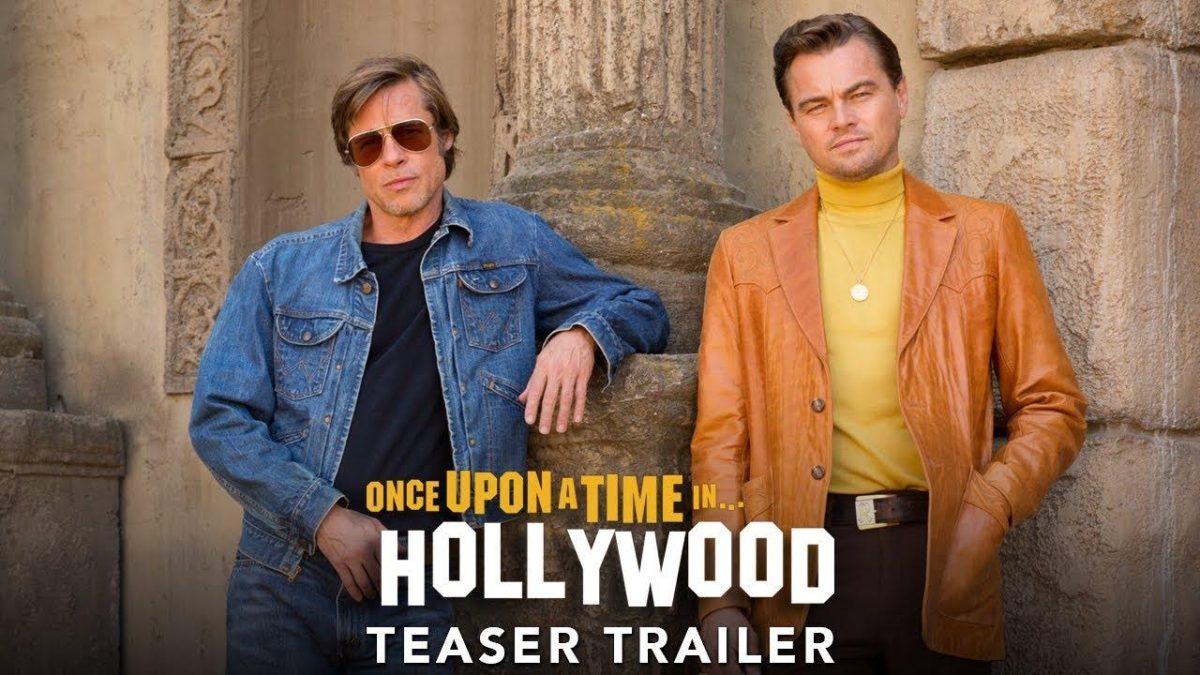Stars: 3.5/5
From the samurai-fueled slashing of the “Kill Bill” trilogy to the bloody criminal frenzy of “Reservoir Dogs,” Quentin Tarantino is no stranger to the gruesome. His newest venture into the macabre, however, marks an almost jarring change of pace.
“Once Upon a Time in Hollywood” brings viewers directly into the death of the golden age of film, teleporting them straight into a world fueled by drugs, protest and a whole cast of fading spotlights.
The primary focus is on outdated western actor Rick Dalton (Leonardo DiCaprio) and his trusty stunt double Cliff Booth (Brad Pitt). Booth essentially functions as Dalton’s sidekick, too much of a loose cannon to land a job, but in the perfect position to chauffeur and emotionally support his actor counterpart.
The story line itself is more of a snapshot than a linear “rising action, climax, resolution” format. It’s a convoluted tale of friendship laced with the anxiety of dwindling stardom with the occasional mention of the one and only Charles Manson. It straddles the line between reality and historical fiction but begins to lose the real (and shocking) story in the embellishment.
What makes this story so surprising, however, is the minimal amount of action. Tarantino’s trademarks for the last several decades of his career have been gore and action — a chaotic show of blood and carefully-choreographed fight scenes the viewer can barely handle without getting sick to their stomach.
Of the nearly three-hour run time, only 10 minutes are dedicated to violence. For the most part, the film is a depiction of the past. It’s an era in which everyone in Hollywood was feeling the ache of dwindling fame, their golden years left behind without a trace.
Something is telling me Tarantino is channeling some of his own personal experience here.
Even though the movie is one of the director’s most personal to date, it lacks the punch that makes the director’s films so impactful. Instead of something dripping with intensity, it’s a pastel, semi-historical account. It’s a movie for those in the industry and a time machine for those that aren’t.
Still, the film is still a worthy watch for anyone craving a dose of Vietnam-War-era nostalgia. Everything is so impeccably shifted to 1969 without becoming a caricature of the hippie movement like that time period so often is, and the performances from each actor make everything feel so seamlessly real. Tarantino nailed the aesthetic but lost the story line along the way.
Overall, “Once Upon a Time in Hollywood” seems to function more as a stepping stone in Tarantino’s career than anything else. It’s a trip to a past that mirrors the director’s future, but it’s still an enjoyable snapshot to witness.
Rev Ranks: ‘Once Upon a Time in Hollywood’ aesthetically pleasing, lacking in plot
August 27, 2019
once upon a time in hollywood





